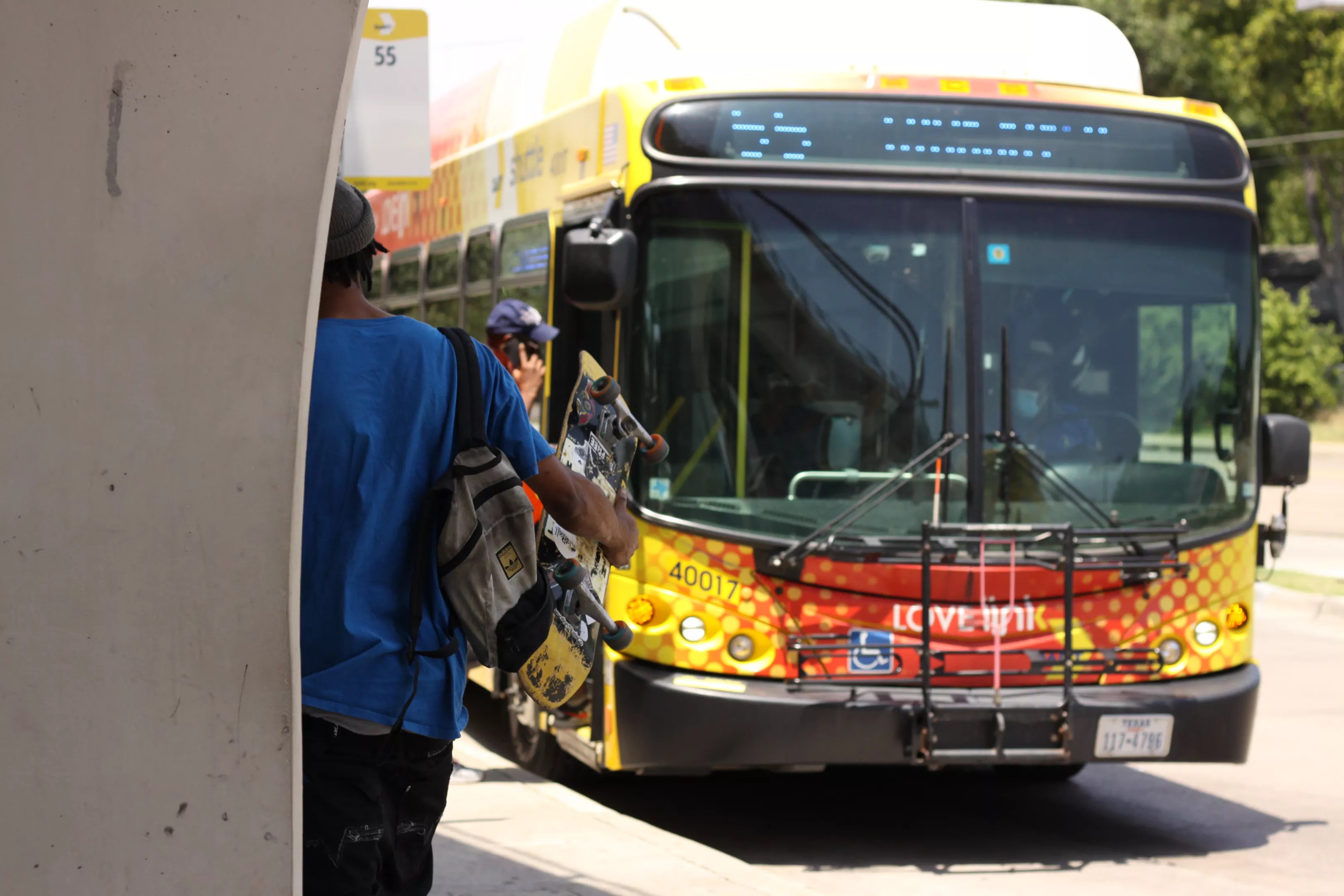
Jacob Vaughn

Audio By Carbonatix
Four of the 13-member cities of the Dallas Area Rapid Transit (DART) have stated their intention to end their contracts with the service if voters decide to do so. After a contentious legislative session and failed attempts led by Plano to edge their way out of DART contracts, Farmers Branch, Highland Park, Irving, and Plano will turn the decision over to residents in the May 2026 election.
Nadine Lee, DART president and CEO, said all transportation services provided by the transit system would immediately halt in cities where voters choose not to pay a portion of sales taxes to support DART. The transit system covers over 700 square miles across bus routes, rail lines and curbside on-demand transportation, and without DART, thousands of North Texans would lose easy intercity travel provided by the system. But some cities, recognizing the need for public transportation, have already begun planning their next move for when, if, DART services end within their limits.
Plano and Irving have already announced their intentions to establish “microtransits,” which are typically on-demand, ride-share transportation services, such as buses and shuttles, and can be assisted by contracts with industry leaders like Uber or Via. Microtransit systems notably do not interconnect cities. Neither city has detailed how its microtransit systems would work, but both have certified their intention to establish a replacement form of public transportation.
“Regardless of the outcome, Plano remains committed to providing accessible transportation for all residents, including people with disabilities, seniors and individuals who rely on public transportation,” reads a release from the city. “Funding is already set aside to implement a fast, efficient Microtransit solution tailored to the community’s needs.”
While Plano has already been saving up, Irving assured residents that money to fund a replacement would be found.
“If the residents vote for Irving to leave the DART system, the city will ensure funding is set aside to implement an effective and efficient microtransit solution tailored to the community’s transportation needs,” reads the city’s website.
However, microtransit systems do not compare to DART’s full network, and microtransit riders in cities without DART services highlight their incomparability.
Liam Crowley lives in Arlington, which is not a DART member city. He doesn’t have a car; instead, he occasionally rides the city’s microtransit system, provided by the company Via through a $5 million annual contract. Crowley says microtransit is a great solution for the “last mile,” the end of the trip when your destination is just a bit too far from the last rail line stop. But beyond that, it’s unideal, and certainly not a full replacement for DART.
Scheduling Uncertain
Other problems with rideshare microtransit systems are that riders should not have someone waiting for them at their destination, because any ETA is essentially moot, as most such services do not operate on set schedules like larger systems, such as DART
“It’s not reliable or dependable,” he said. “If you’re in a very suburban area like some of these DART cities, the bus might not be as frequent as you would like it, but the bus might come every 30 minutes, and you know that the bus will come every 30 minutes.”
In theory, microtransit systems work for quick, casual rides. But as a permanent means of reliable transportation, they fall incredibly short, Crowley says.
“You can easily say you have coverage for a large area, like Arlington has done, but it doesn’t serve any of that well.”
When the four cities initially unveiled their plans to leave DART with voter support, Lee highlighted the loss of interconnectedness as the ultimate detriment to riders who commute in and out of those cities daily, but who will not have the opportunity to vote.
“I think the timing is extraordinarily unfortunate,” she said. “I think we had a lot of really positive feelings about DART, coming out with the Silver Line opening. I think it’s just really heartbreaking. I’m really heartbroken, mostly for the riders, because I think the riders who are impacted, I don’t believe, have a voice in this right now.”